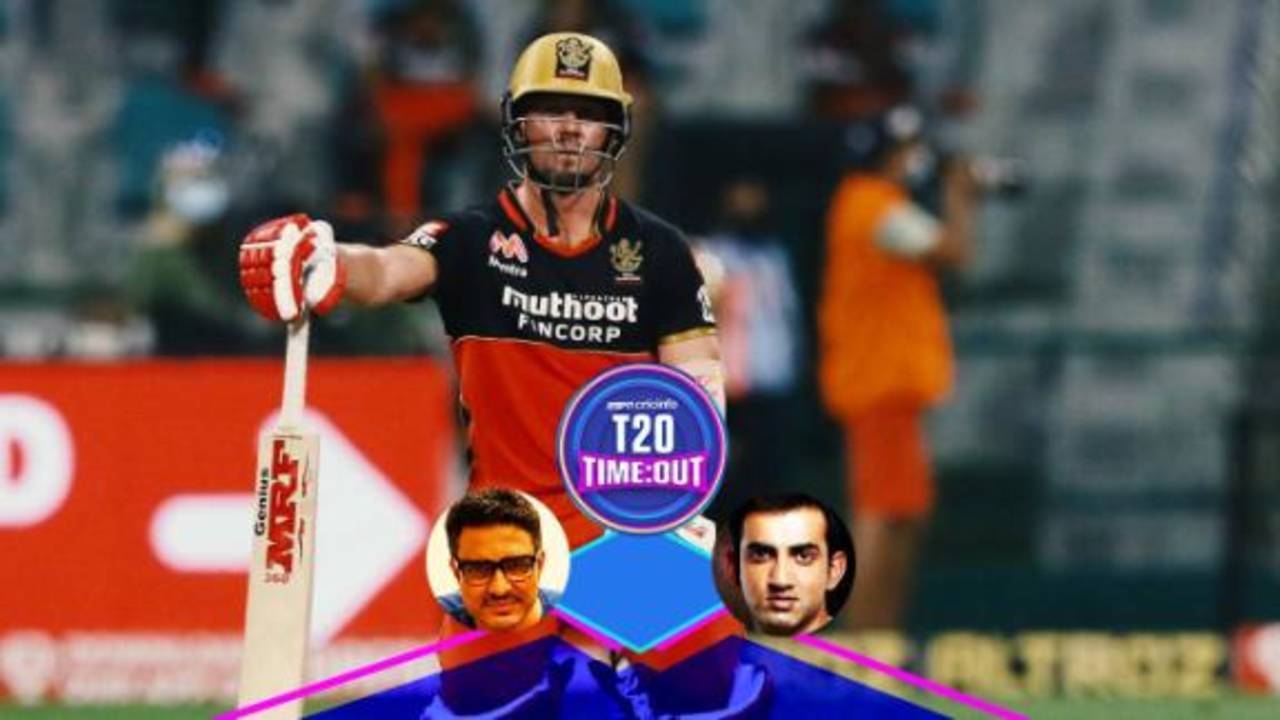Talking Points: Why did Virat Kohli open the batting for Royal Challengers Bangalore?
Also, why did David Warner not keep Rashid Khan for the death? Was it to attack AB de Villiers early?
Nagraj Gollapudi
06-Nov-2020
The talking points from the IPL Eliminator played between Royal Challengers Bangalore and Sunrisers Hyderabad
Why did the Royal Challengers Bangalore pick four spinners?
Yuzvendra Chahal, Washington Sundar, Moeen Ali and Adam Zampa. At the toss, it seemed like a bold call by the Royal Challengers to go for as many as four spinners, having made four changes of which only one was forced. Bowling allrounder Chris Morris was unavailable due to injury, but his absence was offset in the fast bowling department by the return of Navdeep Saini, who took the spot of Shahbaz Ahmed. Aaron Finch replaced fellow Australian Josh Philippe, while Zampa was preferred over Isuru Udana. Ali took the place of Morris, possibly more for his batting in the middle order than for his offspin.
It was a courageous move planned by Virat Kohli along with the Royal Challengers' coaching staff led by Simon Katich and Mike Hesson and nearly worked out.

ESPNcricinfo Ltd
Why did Virat Kohli open?
Kohli did that to address two issues that have affected the Royal Challengers this season. They had hired Finch to provide robust starts in the powerplay, but he has struggled for fluency all tournament. That has, in turn, hurt the team's run rate and Finch was benched after playing 11 matches during the league phase, where he got 246 runs at a strike rate of just 111. At the toss too, Kohli did not reveal where Finch would bat.
Finch's other handicap is the incoming delivery, which is a strike weapon for the Sunrisers' new-ball bowler Sandeep Sharma. Hence, it did not come as a surprise when Kohli walked out as Devdutt Paddikal's opening partner.

The Virat Kohli as opener tactic doesn't come off - Jason Holder with the key wicket•BCCI
The plan to open with Kohli had substance. Kohli would bat deep and that would address the issue of a slow run rate in the middle overs, a phase where the Royal Challengers have been the weakest among all sides. Kohli playing the anchor would help Paddikal, Finch, AB de Villiers and Ali to play with freedom.
However, Kohli had not opened even once in the 14 matches during the league phase; and that meant starting afresh. He remained watchful in the first over against his nemesis Sharma, who has got him the most times in the IPL, including twice in the league phase this year. But a rising delivery at the other end from Jason Holder still got him out early and exposed the Royal Challengers to trouble.
They were 32 for 2 after the powerplay and managed to hit just one boundary by the end of the tenth over. Feeling the pinch, Finch holed out in the deep in the next over as the Royal Challengers' strategy flopped.
Why did Rashid Khan not bowl at the death?
Firstly, Khan hardly bowls from overs 17-20 - he has only done that twice this IPL before Friday. In this game, he started his spell immediately after the powerplay and even finished it with five overs to go.
The move may have raised eyebrows as to why David Warner wouldn't save his best bowler for the death, especially with the threat of de Villiers looming. Today, though, the Royal Challengers' top order collapse followed by a slow recovery meant the pressure was on de Villiers to force the issue. Also, with Khan having had a grip over de Villiers in the past and with the latter out to bat early this evening, the Sunrisers stuck to the plan of bowling out Khan in the middle overs.
Though Khan went wicketless, his sole aim today was to attack de Villiers and get his wicket. And even though de Villiers denied him that joy, he managed just 12 runs off ten balls against Khan with just one boundary. And T Natarajan, with his excellent scrambled seam yorker, ensured de Villiers never find the space or the freedom to hurt the Sunrisers at the death.
Did the TV umpire err in giving Warner out?
Warner was folded into two by an angled delivery from Siraj, who was bowling his third straight over in the powerplay. Warner had moved down the leg side attempting a premediated shot, but Siraj cleverly followed the Sunrisers captain cramping him for any room. The ball zipped past Warner's cocked right glove and at the same time seemed to kiss his trousers before de Villiers brilliantly pouched it by diving to is right and appealed for a caught behind.
S Ravi, the on-field umpire did not budge. With a couple of seconds left for the 15-second DRS countdown, Kohli asked for the review. UltraEdge indicated a spike just when the ball passed the glove and the trouser without any conclusive evidence about what exactly it touched. However, after several replays TV umpire Virender Sharma concluded there was enough evidence that the ball had touched Warner's glove. Sharma overruled Ravi, denying Warner the benefit of doubt, by ruling the batsman out.
Nagraj Gollapudi is news editor at ESPNcricinfo
